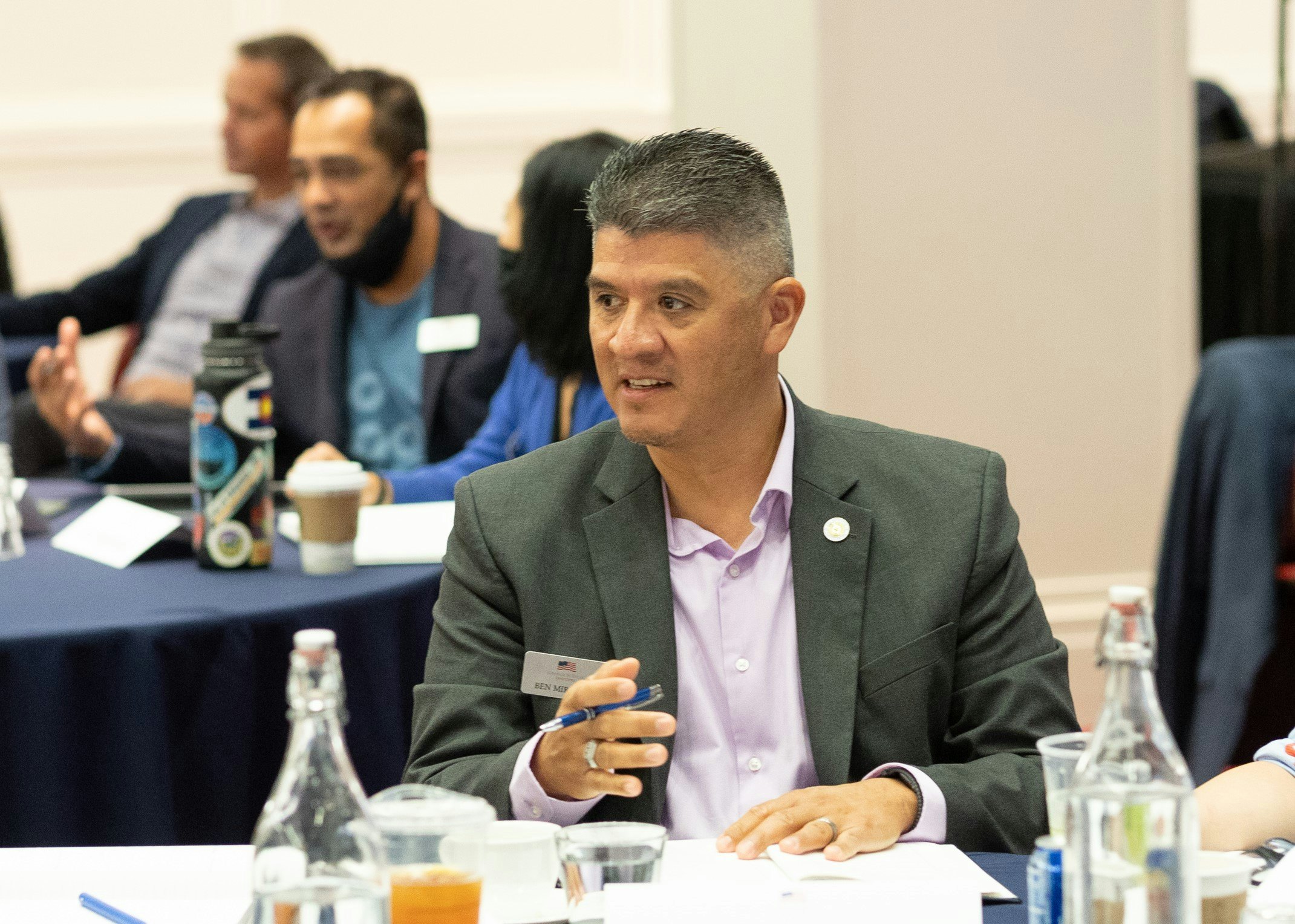The Bush Institute at the George W. Bush Presidential Center today released Serving Our Post-9/11 Veterans, a comprehensive report on...
DALLAS, Texas
The Bush Institute at the George W. Bush Presidential Center today released Serving Our Post-9/11 Veterans, a comprehensive report on veteran-serving non-profit organizations that identifies best practices to support successful veteran transition and highlights the critical role funders play in effectively serving veterans. This research, released at the Bush Institute’s Military Service Initiative’s second national Summit focused on veterans and their families, is part of the belief that helping members of the military successfully transition to civilian life is a national responsibility.
“Veterans are uniquely skilled. They are adaptive, they are resilient, and they are highly trained problem solvers. In uniform, they have a strong sense of purpose and a commitment to service. It is our responsibility, therefore, to provide them with assistance when they come home, so that they become leaders in their communities, innovative entrepreneurs, and valuable employees,” said Margaret Spellings, President of the George W. Bush Presidential Center. “A critical part of that transition is the non-profit organizations that serve veterans, the funders of those organizations, and the communities in which veterans live.”
For more than a year, the Bush Institute has partnered with Syracuse University’s Institute for Veterans and Military Families to describe what is currently known about post-9/11 veterans and their families—the first report , released last fall, illustrated who they are and the issues they face. The second report, released today, focused on the more than 45,000 non-profit organizations that aim to serve them. A key finding from the original report informs the work of the Bush Institute’s Military Service Initiative overall: the nature of an all-volunteer military service during a time of extended conflict results in a civilian-military divide.
One opportunity to close that gap is to identify effective strategies and practices for non-profit organizations to better serve veterans. Those findings and analysis resulted in the Serving Our Post-9/11 Veterans report and accompanying toolkits for non-profit organizations and funders.
Major findings from the research include:
- Funders Drive Impact – The more demanding funders are with their goals and expected outcomes, the more effective organizations become, as does the likelihood that their services will be sustainable and make an impact. Corporations and philanthropies must be good partners who provide technical expertise, evaluation and consulting, and innovative resources to serve the veteran population.
- Elements of Organizational Effectiveness – Effective non-profit organizations have mature infrastructure, competent staff, and processes and systems to both deliver effective services and to collect, measure, and assess the impact of their performance. They have a diverse portfolio of funding sources that ensures sustainability and innovation. Effective veteran-serving non-profit organizations have a robust case management system and a cross-community collaboration and referral system.
- Serving Veterans is Different – Three things matter most in serving veterans: bridging the civilian-military divide and fostering a sense of belonging; individualized case management and customized delivery of services; and referral networks that foster collaboration with providers and cover multiple needs
“We want to make sure post-9/11 transitioning veterans are getting the best support possible,” said Colonel Miguel Howe, Director of the Bush Institute’s Military Service Initiative. “That means ensuring veteran-serving non-profit organizations and the funders supporting them have accessible information on how to make the most effective impact. And we hope this research does just that.”
The research team examined 25 organizations based upon a number of factors, such as their length of service, types of services, and geographic focus. The efforts involved on-site visits and interviews with executive leaders and program staff.
The Bush Institute will continue to collaborate with a range of foundations to help philanthropies, businesses, and individuals understand some of the best ways to serve veterans, and to ensure that the toolkits and insights meet their needs. Later this year, a third toolkit will be released designed to specifically help guide post-9/11 veterans and their families to effective services.
To view the complete Serving Our Post-9/11 Veterans research and toolkits, visit: www.bushcenter.org/serveourvets
###
About the Bush Institute:
Housed within the George W. Bush Presidential Center, the George W. Bush Institute is an action-oriented, nonpartisan policy organization with the mission of cultivating leaders and advancing policies to solve today’s most pressing challenges. It raises current and thought-provoking issues and builds programs to address the challenges facing our nation and our world. The work of the Bush Institute is inspired by the principles that guided the Bushes in public life: education is the foundation of a successful life; freedom is a universal human desire; free enterprise is the engine of economic prosperity; and every human life is precious.
About the Military Service Initiative:
The mission of the Bush Institute’s Military Service Initiative is to enhance how we serve our warriors and their families as they return home, ready to continue their service to their country. Through research, resources, and recognition, the Military Service Initiative unites and empowers communities, military service organizations, business, academia, philanthropy, and individual citizens to effectively support post-9/11 service members, veterans, and their families in the areas of jobs, wellness, family, education, housing, and women’s veteran issues.





























